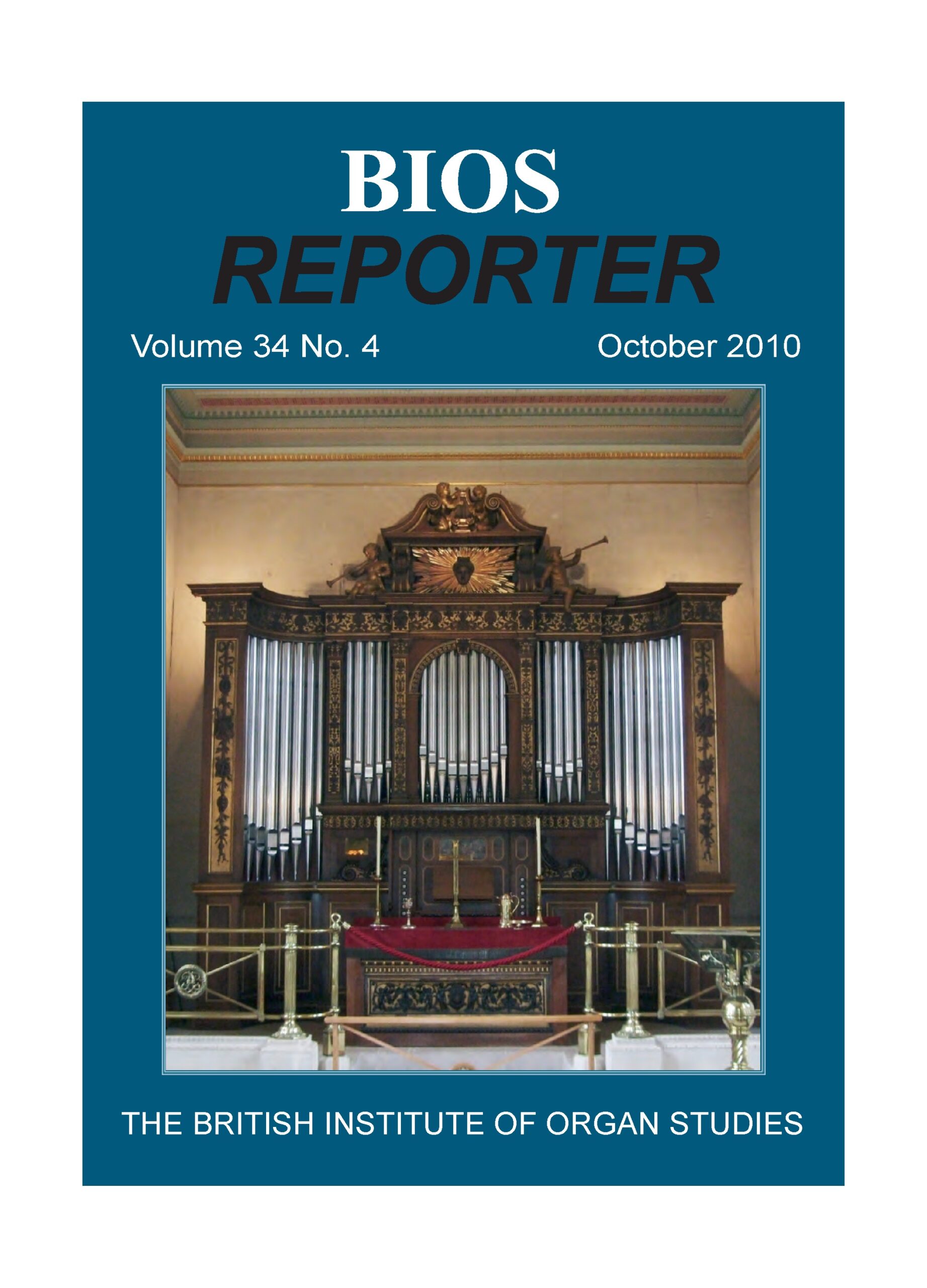Memories are short and the selective retention of recollections of the good times seems to one of our favourite pastimes: don’t we all remember those long hot summers of our childhood? However, I suspect that if we were to read the summer weather forecasts of yore they would bear a striking resemblance to those of today. The increasing availability of electronic databases of historical newspapers is revealing more and more detail of past history and we must be prepared to revise our view of past events and people in the light of new evidence. Paul Tindall ‘s Research Notes have recounted various instances of minor criminal activity in the organ-building world in the late-eighteenth and early nineteenth century, mostly gleaned from London newspapers. Perhaps it was a tougher world then. Maybe. But I was genuinely surprised to read an account of a musical instrument maker being executed for horse-stealing in 1796 (The Strad 121:1444 [August 2010] 48-52). Lockey Hill was the son of violin maker Joseph Hill (1715-1784), and was in business as a violin maker on his own account. In 1795 Lockey Hill and his servant were found guilty of horse-stealing at the Old Bailey. During the course of the trial, the servant gave evidence that showed that horse-stealing had been a regular pursuit of Hill. Given the importance attached to horses in Georgian England it was not surprising, but still shocking to modern sensibilities, that such a crime was a capital offence. However, it was still the case that, given good references, a convicted criminal would not infrequently be reprieved by judges. Lockey Hill was not able to make a good enough case and was hanged at Tyburn in February 1796 and this was reported in contemporary newspapers. Despite this grave outcome two of Hill’s sons, also violin-makers, were later convicted of stealing and sentenced to transportation. Notwithstanding this early criminal activity subsequent generations of the Hill family went on to establish a violin-making and trading business that became highly reputable and is still in business. Interestingly, a story later developed that Lockey Hill did not die until 1810, thus conveniently sweeping the grim truth under the carpet. The point about this rather dark tale is that events which were once widely known, and reported, at the time were quickly forgotten. Lest we think that such murky pasts are only for other trades, we might pause to wonder about some of the discrepancies that occur in the dating and attribution of organs two or more centuries ago. Was that creaking noise coming from the bellows or was it a skeleton rattling somewhere in the casework?…
